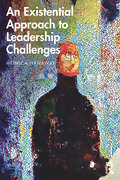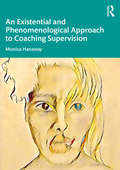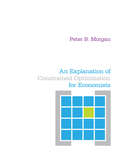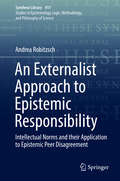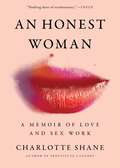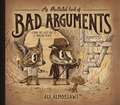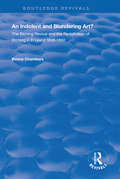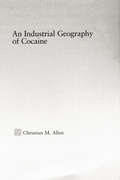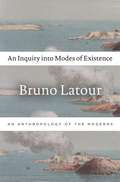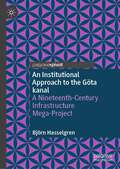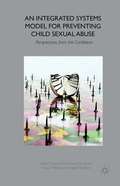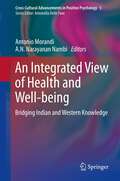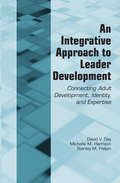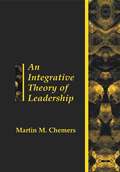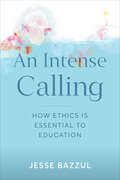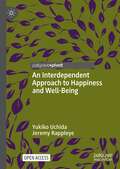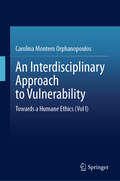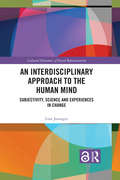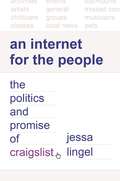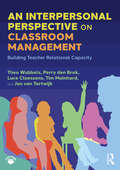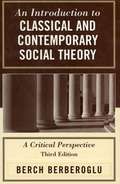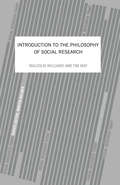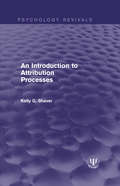- Table View
- List View
An Existential Approach to Leadership Challenges
by Monica HanawayIn An Existential Approach to Leadership Challenges, Monica Hanaway progresses us forward from a brief, introductory understanding of existential thought to considering how this approach can positively address the practical leadership challenges our twenty-first century leaders face today. Hanaway presents a practical framework to tackle the greatest challenges in leadership, such as creating an inspiring and authentic vision, recruiting, retaining and developing staff and dealing with conflict. In Part I, she presents an overview of existential thought and what existentialism can bring to leadership, helping resolve issues of uncertainty, authenticity, relatedness, freedom and meaning making. In Part II, she explores how to work practically with an existential leadership approach, showing how existentialism can help communicate a vision, examining the vision statements of existing businesses as case studies and explaining the importance of this in recruiting, developing and retaining staff. Finally, she explores how the existential approach is beneficial in preventing, managing and dealing with conflict, defining what conflict is and introducing existentially informed conflict coaching and psychologically informed mediation practice. Combining philosophical and practical thinking, Hanaway has made existentialism an accessible resource for all leaders. This book will appeal to future leaders in practice and in training, and anyone in a leadership role. It will also be of interest to academics and students of coaching and coaching psychology, as well as to those interested in applied philosophy and psychology.
An Existential and Phenomenological Approach to Coaching Supervision
by Monica HanawayAs the methodology for coaching supervision has grown and developed in recent years, so too has the need for comprehensive engagement with the needs of supervisees. This ground-breaking and much-needed new book from Monica Hanaway presents a unique existential approach to coaching supervision. This book includes an introduction to the model, with emphasis on the philosophical focus of the existential coaching approach and concepts such as uncertainty, freedom, emotions, values and beliefs, meaning and relatedness. Hanaway offers supervisors ways of working with their supervisees on each of the key existential themes, as well as a comparison with other coaching supervision models. This book describes how a supervisor can bring an existential approach into their work, both with existential coaches and with those working in different modalities who are interested in adding to their portfolio of service. It will be of immense value to academics and students of coaching psychology.
An Experiment With Time
by J. W. DunneA book by the British aeronautical engineer J. W. Dunne (1875-1949) on the subjects of precognitive dreams and the nature of time. First published in March 1927, it was very widely read, and his ideas were promoted by several other authors, in particular by J. B. Priestley. He published three sequels; The Serial Universe, The New Immortality, and Nothing Dies.
An Explanation of Constrained Optimization for Economists
by Peter MorganIn a constrained optimization problem, the decisionmaker wants to select the "optimal" choice - the one most valuable to him or her - that also meets all of the constraints imposed by the problem. Such problems are at the heart of modern economics, where the typical behavioral postulate is that a decisionmaker behaves "rationally"; that is, chooses optimally from a set of constrained choices.Most books on constrained optimization are technical and full of jargon that makes it hard for the inexperienced reader to gain a holistic understanding of the topic. Peter B. Morgan's Explanation of Constrained Optimization for Economists solves this problem by emphasizing explanations, both written and visual, of the manner in which many constrained optimization problems can be solved. Suitable as a textbook or a reference for advanced undergraduate and graduate students familiar with the basics of one-variable calculus and linear algebra, this book is an accessible, user-friendly guide to this key concept.
An Externalist Approach to Epistemic Responsibility: Intellectual Norms and their Application to Epistemic Peer Disagreement (Synthese Library #411)
by Andrea RobitzschThis monograph provides a novel reliabilist approach to epistemic responsibility assessment. The author presents unique arguments for the epistemic significance of belief-influencing actions and omissions. She grounds her proposal in indirect doxastic control.The book consists of four chapters. The first two chapters look at the different ways in which an agent might control the revision, retention, or rejection of her beliefs. They provide a systematic overview of the different approaches to doxastic control and contain a thorough study of reasons-responsive approaches to direct and indirect doxastic control.The third chapter provides a reliabilist approach to epistemic responsibility assessment which is based on indirect doxastic control.In the fourth chapter, the author examines epistemic peer disagreement and applies her reliabilist approach to epistemic responsibility assessment to this debate. She argues that the epistemic significance of peer disagreement does not only rely on the way in which an agent should revise her belief in the face of disagreement, it also relies on the way in which an agent should act.This book deals with questions of meliorative epistemology in general and with questions concerning doxastic responsibility and epistemic responsibility assessment in particular. It will appeal to graduate students and researchers with an interest in epistemology.
An Historical Analysis of Skin Color Discrimination in America: Victimism Among Victim Group Populations
by Ronald E. HallRacism in America is most-commonly studied as white racism against minority groups (racial, gender, cultural). Often overlooked in this area of study is the discrimination that exists within minority groups. Through a detailed historical and sociological analysis, the author breaks down these pernicious, complex, and often misunderstood forms of skin color discrimination: their origins and their manifestations in modern world. Shedding new light on these sensitive issues, this volume will allow them to come to the forefront of academic research and open dialogue. This comprehensive work will include coverage of skin color discrimination within racial, ethnic, sexual, and gender minority groups, and their particular forms and consequences. An Historical Analysis of Skin Color will be an important work for researchers studying the Sociology of Race and Racism, Gender Studies, LGBT Studies, Immigration, or Social Work.
An Honest Woman: A Memoir of Love and Sex Work
by Charlotte ShaneThrough the lens of her years spent as a sex worker, Charlotte Shane offers a provocative and tender reckoning of what it means to be a heterosexual woman and a feminist in a misogynistic society.In her early twenties, Charlotte Shane quit her women&’s studies graduate program to devote herself to sex work because it was a way to devote herself to men. Her lifelong curiosity about male lust, love, selfishness, and social capital dovetailed with her own insatiable desire for intimacy to sustain a long career in escorting, with unexpectedly poignant results. Shane uses her personal and professional history to examine how men and women struggle in their attempts at romantic and sexual bonding, no matter how true their intentions. As she takes stock of her relationships—with clients, with her father, with friends, with married men, and later, with her own husband—she tells a candid and haunting tale of love, marriage, and (in)fidelity, as seen through the eyes of the perpetual &“other woman.&” Braiding the personal and the universal, Shane&’s memoir is a merciless and moving love letter to straight men and an indictment of habitual dishonesty, a condemnation of every social constraint acting on heterosexual unions, and a hopeful affirmation of the possibility for true connection between men and women.
An Illustrated Book of Bad Arguments
by Ali Almossawi Alejandro GiraldoThe antidote to fuzzy thinking, with furry animals! <P><P>Have you read (or stumbled into) one too many irrational online debates? Ali Almossawi certainly had, so he wrote An Illustrated Book of Bad Arguments! This handy guide is here to bring the internet age a much-needed dose of old-school logic (really old-school, a la Aristotle). <P><P>Here are cogent explanations of the straw man fallacy, the slippery slope argument, the ad hominem attack, and other common attempts at reasoning that actually fall short—plus a beautifully drawn menagerie of animals who (adorably) commit every logical faux pas. Rabbit thinks a strange light in the sky must be a UFO because no one can prove otherwise (the appeal to ignorance). And Lion doesn’t believe that gas emissions harm the planet because, if that were true, he wouldn’t like the result (the argument from consequences). <P><P>Once you learn to recognize these abuses of reason, they start to crop up everywhere from congressional debate to YouTube comments—which makes this geek-chic book a must for anyone in the habit of holding opinions.
An Indolent and Blundering Art?: The Etching Revival and the Redefinition of Etching in England (Routledge Revivals)
by Emma ChambersFirst published in 1999, Chambers explores English etching changed that radically during the nineteenth century. This book looks into the freedom and directness of the etching process became a key plank in a sustained attempt to raise the status of etching in Britain spearheaded by artists such as Francis Seymour Haden and James McNeill Whistler and members of the Etching Club. An Indolent and Blundering Art? Opens with a description of the use of language and art criticism to redefine etching
An Industrial Geography of Cocaine
by Christian M. AllenLatin American cocaine trafficking organizations comprise an indigenous, globally competitive, multinational industry. Their business operations are deeply ingrained within the economic and political systems of countries throughout the region. While criminal enterprises operate in a more complex and uncertain setting than licit firms, their competitive success is determined in fundamentally similar ways. Models developed by geographers to explain the spatial behavior of licit multinational firms are profitably applied here to the operations of drug trafficking operations.
An Inquiry into Modes of Existence: An Anthropology of the Moderns
by Bruno LatourIn this new book, Bruno Latour offers answers to questions raised in We Have Never Been Modern, a work that interrogated the connections between nature and culture. If not modern, he asked, what have we been, and what values should we inherit? Over the past twenty-five years, Latour has developed a research protocol different from the actor-network theory with which his name is now associated--a research protocol that follows the different types of connectors that provide specific truth conditions. These are the connectors that prompt a climate scientist challenged by a captain of industry to appeal to the institution of science, with its army of researchers and mountains of data, rather than to "capital-S Science" as a higher authority. Such modes of extension--or modes of existence, Latour argues here--account for the many differences between law, science, politics, and other domains of knowledge. Though scientific knowledge corresponds to only one of the many possible modes of existence Latour describes, an unrealistic vision of science has become the arbiter of reality and truth, seducing us into judging all values by a single standard. Latour implores us to recover other modes of existence in order to do justice to the plurality of truth conditions that Moderns have discovered throughout their history. This systematic effort of building a new philosophical anthropology presents a completely different view of what Moderns have been, and provides a new basis for opening diplomatic encounters with other societies at a time when all societies are coping with ecological crisis. Translated by Catherine Porter.
An Institutional Approach to the Göta kanal: A Nineteenth-Century Infrastructure Mega-Project
by Björn HasselgrenThis book is based on an institutional evolutionary theoretical view to the Göta kanal. Canals were the major transport infrastructure system besides roads and maritime transport until railroads were introduced. The canal studied is the Swedish Göta kanal project during the preparation and construction phase from 1800–1832. Thus, the Göta kanal, and the canal-era, is seen from a technological, an economic and a political perspective. Comparisons are made with two contemporary major canal-projects; the Erie Canal in the USA (1817–1825) and the Caledonian Canal in Britain (1804–1822). It is argued that the Göta kanal project, as Sweden's Mega Project of its time, represented an important development step in Sweden as regards learning and innovation and became a starting point for Swedish transport infrastructure projects in the time to come, primarily the railways.
An Integrated Systems Model for Preventing Child Sexual Abuse
by Adele D. Jones Ena Trotman Jemmott Priya E. Maharaj Hazel Da BreoThis book sets out an integrated systems model which utilizes a public health approach and 'whole of society' philosophy for preventing and responding to child sexual abuse. It guides those engaged in policy, practice and planning concerning gender based violence and child abuse towards a more systemic approach to tackling these problems.
An Integrated View of Health and Well-being: Bridging Indian and Western Knowledge (Cross-Cultural Advancements in Positive Psychology #5)
by A.N.Narayanan Nambi Antonio MorandiConcepts like Health and Well-being are not exclusive products of the Western culture. Research has widely demonstrated that the representation of the body and of its pathologies, as well as treatment and healing practices vary across cultures in relation to social norms and beliefs.The culture of India is a melting pot of nine main Darshanas, or philosophical systems, that share the common core of a realization of the self in society. India's traditional health system, Ayurveda, is a result of the practical application of the Darshanas to the observation of human nature and behavior. Ayurveda conceptualizes health, disease and well-being as multidimensional aspects of life, and it seeks to preserve a balance in individuals among their biological features, their psychological features and their environmental demands. The Ayurveda approach to health is remarkably similar to the eudaimonic conceptualization of well-being proposed by positive psychology, and the basic tenets of Ayurveda are deeply consistent with the latest developments of modern physics, which stresses the substantial interconnectedness among natural phenomena and their substrates. This text shows how the approach to health developed in Ayurveda can be fruitfully integrated in a general view of health and well-being that encompasses cultural and ideological boundaries. Specifically, it details the conceptualization of health as an optimal and mindful interaction between individuals and their environment.
An Integrative Approach to Leader Development: Connecting Adult Development, Identity, and Expertise
by David V. Day Michelle M. Harrison Stanley M. HalpinThis book is a beginning, a first step, in taking leader development in organizations beyond conventional wisdom toward a scientifically sound research-based set of principles and practices. The authors looked beyond their own academic disciplines to bring to bear accumulated wisdom from researchers who have developed well-established and accepted
An Integrative Theory of Leadership (Social Psychology Ser.)
by Martin ChemersA definition of leadership that would be widely accepted by the majority of theorists and researchers might say that "leadership is a process of social influence in which one person is able to enlist the aid and support of others in the accomplishment of a common task." The major points of this definition are that leadership is a group activity, is based on social influence, and revolves around a common task. While this specification seems relatively simple, the reality of leadership is very complex. Intrapersonal factors (thoughts and emotions) interact with interpersonal processes (attraction, communication, and influence) to have effects on a dynamic external environment. Each of these aspects brings complexity to the leadership process. It is the purpose of this book to make that complexity a bit more manageable, increasing the ability to understand what effective leadership is. This volume offers a comprehensive analysis and integration of the empirical research literature and major theories of leadership. It employs a functional analysis stressing what leaders must do to be effective and specifies the processes related to each function. The chapters provide an extensive review of the major approaches to leadership. Each chapter is discussed with an eye to explaining the basic principles, the research evidence, and where appropriate, the relationship of the theory or research program to other theories. In addition, this volume offers the most comprehensive treatment of cultural and gender factors in leadership of any recent book. The question of male-female differences in leadership style and performance is carefully analyzed against the empirical findings. The ultimate goal of this review of the literature is to provide a basis for the presentation of an integrative model of leadership that brings together function and process and provides an armature for integrating what is known.
An Intense Calling: How Ethics Is Essential to Education
by Jesse BazzulPositing that education is a movement from one way of being to another, more desirable one, An Intense Calling argues that ethics should be the prime focus for the field of education. The book locates ethics, education, and justice in human subjectivity and describes education as a necessary practice for ethical reflexivity, change, and becoming (ethically) different. It also situates ethics as something that exceeds subjectivity, thereby engaging ethics as a material phenomenon through topics such as aesthetics and solidarity with non-humans. Jesse Bazzul explores various concepts in the book including power, biopolitics, the commons, subjectivity, and materiality, and draws from over twenty years of experience teaching in different countries including Canada, Ireland, the United States, China, and Ukraine. Taking a wide-ranging philosophical approach, the book entangles ethics, urgent political issues, and pressing educational contexts of the twenty-first century. In doing so, An Intense Calling maintains that ethics is the core of education because education involves finding better ways of living and being in the world.
An Interdependent Approach to Happiness and Well-Being
by Jeremy Rappleye Yukiko UchidaThis open access book examines an interdependent approach to happiness and well-being, one that contrasts starkly with dominant approaches that have originated from Western culture(s). It highlights the diversity of potential pathways towards happiness and well-being globally, and answers calls - voiced in the UN’s Sustainable Development Goals - for more socially and environmentally sustainable models.Leading global organizations including the OECD, UNICEF, and UNESCO are now proposing human happiness and well-being as a more sustainable alternative to a myopic focus on GDP growth. Yet, the definition of well-being offered by these organizations derives largely from the philosophies, social sciences, and institutional patterns of Europe and the United States. Across seven chapters this book carefully probes the inadequacy of these approaches to well-being globally and reveals the distorting effect this has on how we imagine our world, organize institutions, and plan our collective future(s). It shares a wealth of evidence and examples from across East Asia - a region where interdependence remains foregrounded - and concludes by provocatively arguing that interdependence may provide a more sustainable approach to happiness and well-being in the 21st century. A timely and accessible book, it offers fresh insights for scholars and policymakers working in the areas of psychology, health, sociology, education, international development, public policy, and philosophy.This is an open access book.
An Interdisciplinary Approach to Vulnerability: Towards a Humane Ethics
by Carolina Montero OrphanopoulosThis book examines vulnerability as an anthropological category, unveiling its profound role in defining human existence. Through an exploration of relationality, dependence, and finitude, it sheds light on how vulnerability shapes human experience and our shared fragility. Engaging with key philosophical, psychological, bioethical and sociological traditions, the volume invites readers to reconsider vulnerability not as a limitation but as a foundation for connection and solidarity. With this approach, the book lays the groundwork for a deeper understanding of human nature, enriched by interdisciplinary dialogue. A precursor to the theological and ethical reflections developed in the second volume, this work redefines vulnerability as central to the human condition.
An Interdisciplinary Approach to the Human Mind: Subjectivity, Science and Experiences in Change (Cultural Dynamics of Social Representation)
by Line JorangerOne of the main aims of modern mental health care is to understand a person's explicit and implicit ways of thinking and acting. So, it may seem like the ultimate paradox that mental health care services are currently overflowing with brain concepts belonging to the external, visible brain-world and that neuroscientists are poised to become new experts on human conduct. An Interdisciplinary Approach to the Human Mind shows that to create care that is truly innovative, mental health care workers must not only ask questions about how their conceptions of human beings and psychological phenomena came into being, but should also see themselves as co-creators of the mystery they seek to solve. Looking at the human being as a being with a biological body and unique subjective experiences, living in a reciprocal relationship with its sociocultural and historical environment, the book will provide examples and theories that show the necessity of an innovating, interdisciplinary mental health care service that manages to adapt its theory and methods to environmental, biological, and subjective changes. To this end, the book will provide an innovating psychology that offers a broad kaleidoscope of perspectives about the relations between the history of psychology, as a scientific discipline oriented to interpret and explain subject and subjectivity phenomenon, and the social construction of subjectified experience. This unique and timely book should be of great interest to critical and cultural psychologists and theorists; clinical psychologists, therapists, and psychiatrists; sociologists of culture and science; anthropologists; philosophers; historians; and scholars working with social and health theories. It should also be essential reading for lawyers, advocates, and defenders of human rights. The Open Access version of this book, available at https://www.taylorfrancis.com/books/9781315309682 has been made available under a Creative Commons Attribution-Non Commercial-No Derivatives 4.0 licence.
An Internet for the People: The Politics and Promise of craigslist (Princeton Studies in Culture and Technology #26)
by Professor Jessa LingelHow craigslist champions openness, democracy, and other vanishing principles of the early webBegun by Craig Newmark as an e-mail to some friends about cool events happening around San Francisco, craigslist is now the leading classifieds service on the planet. It is also a throwback to the early internet. The website has barely seen an upgrade since it launched in 1996. There are no banner ads. The company doesn't profit off your data. An Internet for the People explores how people use craigslist to buy and sell, find work, and find love—and reveals why craigslist is becoming a lonely outpost in an increasingly corporatized web.Drawing on interviews with craigslist insiders and ordinary users, Jessa Lingel looks at the site's history and values, showing how it has mostly stayed the same while the web around it has become more commercial and far less open. She examines craigslist's legal history, describing the company's courtroom battles over issues of freedom of expression and data privacy, and explains the importance of locality in the social relationships fostered by the site. More than an online garage sale, job board, or dating site, craigslist holds vital lessons for the rest of the web. It is a website that values user privacy over profits, ease of use over slick design, and an ethos of the early web that might just hold the key to a more open, transparent, and democratic internet.
An Interpersonal Perspective on Classroom Management: Building Teacher Relational Capacity
by Tim Mainhard Theo Wubbels Perry den Brok Luce Claessens Jan van TartwijkEffective classroom management is an essential skill for teachers and student teachers alike. Packed full of practical examples and evidence-informed guidance, this book offers a comprehensive approach to classroom management that emphasises the importance of building positive teacher-student relationships and fostering a supportive classroom climate that promotes student well-being, engagement, and learning.Drawing from interpersonal theory, 40 years of research in the field, and the authors’ own experiences as teachers and teacher educators, this book offers a deeper understanding of classroom dynamics and provides strategies for navigating various classroom situations. Insightful real-life examples and hands-on practical strategies are provided throughout, as well as tools, individual and team assignments, and best practice for addressing teacher-student interactions and relationships. Its contents will help both novice and experienced teachers manage classrooms for the benefit of student development. It effectively guides readers around teacher relationships and styles, interactions during a variety of classroom situations, responding to challenging student behaviours, and creating a psychologically safe classroom.This book is an essential read for teachers, student teachers, and teacher educators across all education grade levels and subject areas who are seeking to enhance their classroom management knowledge, skills and courses. The book caters to educators at different stages of their careers, from novice teachers aiming to establish a solid foundation to experienced educators interested in refining their interpersonal approaches to classroom management.
An Introduction To Classical And Contemporary Social Theory: A Critical Perspective, 3rd Edition
by Berch BerberogluThis book provides a critical analysis of classical and contemporary social theory from a class perspective. It is concise, lucid, and well written.
An Introduction To The Philosophy Of Social Research (Social Research Today Ser. #Vol. 9)
by Malcolm Williams Tim MayThis is an accessible introduction to the philosophy of social research which relates philosophical ideas to actual research practice. The book makes effective use of illustrations from the UK, US and Europe to examine specific problems and broader issues. The book is intended for undergraduate and postgraduate courses in social research methods within sociology, social policy, politics, social psychology, human geography; philosophy of social science and social theory courses; and as a personal reference for professional researchers.
An Introduction to Attribution Processes (Psychology Revivals)
by Kelly G. ShaverWhy do people act the way they do? How do their desires and fears become known to us? When are our opinions of others correct, and when are they likely to be mistaken? These are questions which attribution theory tries to answer. Originally published in 1975, this title provides an informal introduction to the field of attribution, with the theoretical principles and issues illustrated in everyday examples. The origins of current attribution theory are outlined, and models of the inference process are examined. The intellectual debt owed to social psychology by the attribution theory is acknowledged, and an exploration of the interpersonal and social consequences of attribution is included.
